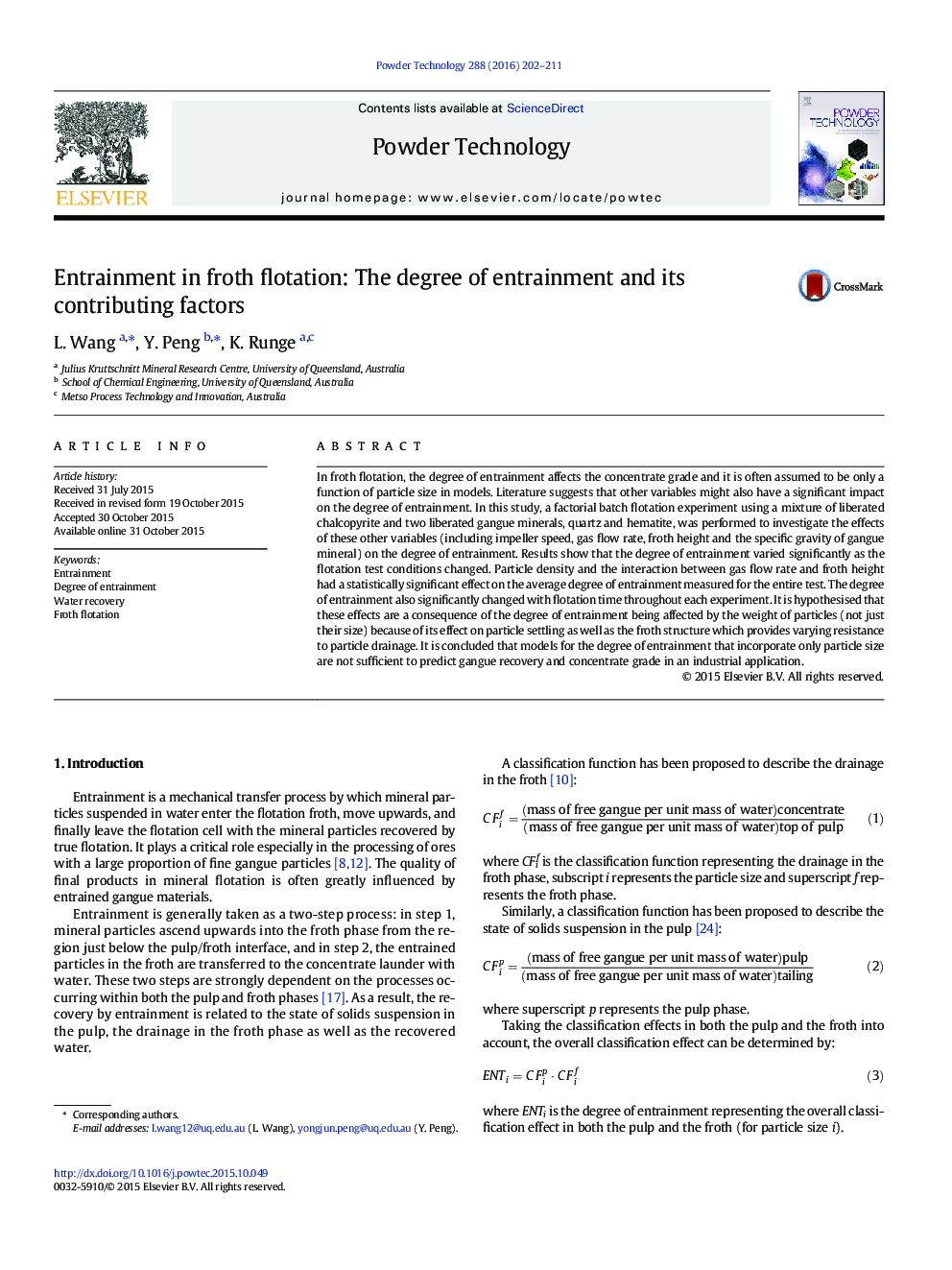| Article ID | Journal | Published Year | Pages | File Type |
|---|---|---|---|---|
| 235499 | Powder Technology | 2016 | 10 Pages |
•Particle density is of great importance in affecting the degree of entrainment.•The relative drainage of solids to water is not residence time dependent in froth.•Frother dosage significantly affects entrained solids to water ratio.
In froth flotation, the degree of entrainment affects the concentrate grade and it is often assumed to be only a function of particle size in models. Literature suggests that other variables might also have a significant impact on the degree of entrainment. In this study, a factorial batch flotation experiment using a mixture of liberated chalcopyrite and two liberated gangue minerals, quartz and hematite, was performed to investigate the effects of these other variables (including impeller speed, gas flow rate, froth height and the specific gravity of gangue mineral) on the degree of entrainment. Results show that the degree of entrainment varied significantly as the flotation test conditions changed. Particle density and the interaction between gas flow rate and froth height had a statistically significant effect on the average degree of entrainment measured for the entire test. The degree of entrainment also significantly changed with flotation time throughout each experiment. It is hypothesised that these effects are a consequence of the degree of entrainment being affected by the weight of particles (not just their size) because of its effect on particle settling as well as the froth structure which provides varying resistance to particle drainage. It is concluded that models for the degree of entrainment that incorporate only particle size are not sufficient to predict gangue recovery and concentrate grade in an industrial application.
Graphical abstractFigure optionsDownload full-size imageDownload as PowerPoint slide
